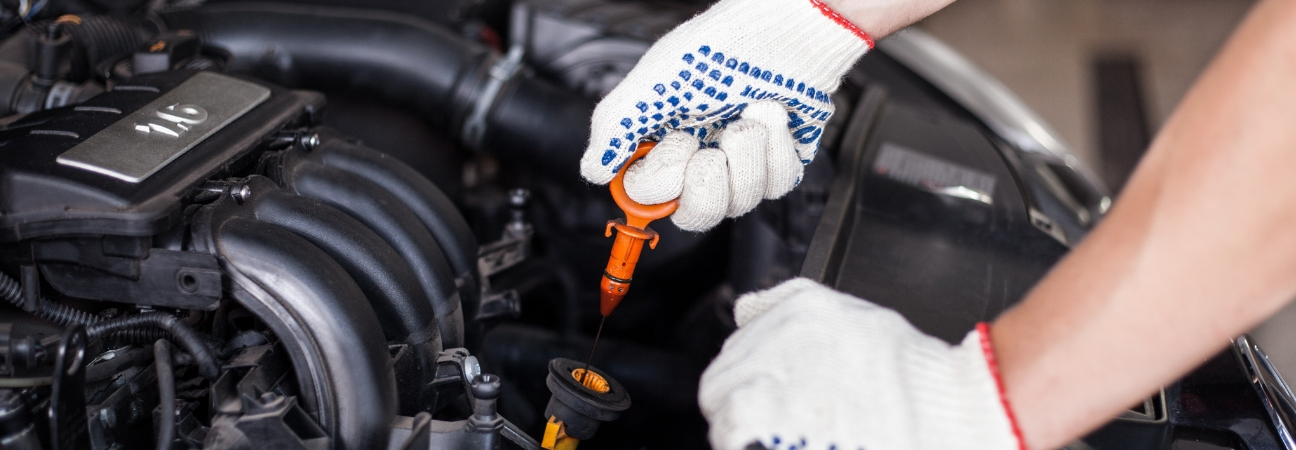All Categories
Featured
Your car's engine is just one of the most intricate systems in your automobile, and every element plays a crucial duty in guaranteeing it runs efficiently. Among these, the timing belt is one of the most important however commonly neglected components of your engine. Accountable for synchronizing the rotation of the crankshaft and camshaft, the timing belt ensures the engine's valves open and close at the proper times throughout the burning procedure. If the timing belt falls short, it can result in serious engine damages. Here's why timing belt substitute is important for your car's efficiency and longevity.
What Is a Timing Belt? The timing belt is a long, toothed rubber or composite belt that connects the crankshaft to the camshaft(s) in an inner combustion engine. Its work is to keep the engine's shutoffs and pistons in sync, ensuring the engine runs effectively. The timing belt also regulates various other crucial engine features like the water pump and the power steering pump, depending upon the vehicle.
![]()
Without the proper timing, the engine's pistons and shutoffs can clash, leading to substantial and pricey damage. Therefore, replacing the timing belt on routine is one of the very best ways to guarantee your engine operates at its ideal and avoid expensive repairs.
Why Timing Belt Replacement Issues. Preventing Catastrophic Engine Damages: The most significant threat of not changing a worn timing belt is engine failure. If the timing belt breaks while the engine is running, the camshaft and crankshaft can end up being misaligned, causing the shutoffs and pistons to collide. This can cause bent shutoffs, damaged pistons, or perhaps a ruined engine. Changing the timing belt at the advised intervals is the finest method to avoid such tragic damages, conserving you from the stress and anxiety and high cost of engine fixings or substitute.
![]()
Maintaining Engine Performance: A timing belt that remains in excellent problem makes sure that all engine components operate in perfect harmony. If the timing belt is used or extended, it can cause the engine to shed power, experience rough idling, or struggle to start. By replacing the timing belt consistently, you can keep your engine going for peak performance, which assists maintain optimal fuel economy and performance.
Avoiding Unexpected Breakdowns: A busted timing belt can trigger your engine to quit abruptly, possibly leaving you stranded in the center of a trip. By changing your timing belt promptly, you decrease the danger of abrupt malfunctions that might leave you in a inconvenient or hazardous scenario. Normal upkeep lowers the opportunities of experiencing these type of disruptions, helping you remain on the road longer without fretting about your engine failing.
Cost-efficient Maintenance: Timing belt substitute is a lot less costly than fixing or changing an engine that's been damaged due to a timing belt failing. While the cost of replacing the timing belt may differ depending on your car and its area, it is even more budget friendly than the costs related to major engine repair services or replacements. Replacing your timing belt at the advised periods can conserve you a substantial amount of cash over the long term by preventing damages to your engine.
When Should You Change Your Timing Belt? The timing belt doesn't last permanently, and a lot of makers advise replacing it between 60,000 and 100,000 miles. The precise timing depends on your lorry's make, model, and driving problems, so it's crucial to inspect your owner's guidebook for particular support.
Indications that your timing belt may need attention consist of uncommon engine sounds (such as a high-pitched whining or ticking audio), difficulty beginning the engine, or a decline in engine efficiency. If you discover any of these signs, it's essential to have the timing belt evaluated by a professional mechanic.
![]()
Verdict. The timing belt is a vital however little component of your engine, and regular substitute is crucial to keeping your automobile's performance and stopping pricey damages. By remaining on top of timing belt maintenance, you'll ensure your engine operates efficiently, avoid unforeseen malfunctions, and shield your cars and truck from major fixings. Keep an eye on your vehicle's advised timing belt substitute schedule, and constantly speak with a relied on mechanic to maintain your engine running efficiently for years to find.
What Is a Timing Belt? The timing belt is a long, toothed rubber or composite belt that connects the crankshaft to the camshaft(s) in an inner combustion engine. Its work is to keep the engine's shutoffs and pistons in sync, ensuring the engine runs effectively. The timing belt also regulates various other crucial engine features like the water pump and the power steering pump, depending upon the vehicle.

Without the proper timing, the engine's pistons and shutoffs can clash, leading to substantial and pricey damage. Therefore, replacing the timing belt on routine is one of the very best ways to guarantee your engine operates at its ideal and avoid expensive repairs.
Why Timing Belt Replacement Issues. Preventing Catastrophic Engine Damages: The most significant threat of not changing a worn timing belt is engine failure. If the timing belt breaks while the engine is running, the camshaft and crankshaft can end up being misaligned, causing the shutoffs and pistons to collide. This can cause bent shutoffs, damaged pistons, or perhaps a ruined engine. Changing the timing belt at the advised intervals is the finest method to avoid such tragic damages, conserving you from the stress and anxiety and high cost of engine fixings or substitute.

Maintaining Engine Performance: A timing belt that remains in excellent problem makes sure that all engine components operate in perfect harmony. If the timing belt is used or extended, it can cause the engine to shed power, experience rough idling, or struggle to start. By replacing the timing belt consistently, you can keep your engine going for peak performance, which assists maintain optimal fuel economy and performance.
Avoiding Unexpected Breakdowns: A busted timing belt can trigger your engine to quit abruptly, possibly leaving you stranded in the center of a trip. By changing your timing belt promptly, you decrease the danger of abrupt malfunctions that might leave you in a inconvenient or hazardous scenario. Normal upkeep lowers the opportunities of experiencing these type of disruptions, helping you remain on the road longer without fretting about your engine failing.
Cost-efficient Maintenance: Timing belt substitute is a lot less costly than fixing or changing an engine that's been damaged due to a timing belt failing. While the cost of replacing the timing belt may differ depending on your car and its area, it is even more budget friendly than the costs related to major engine repair services or replacements. Replacing your timing belt at the advised periods can conserve you a substantial amount of cash over the long term by preventing damages to your engine.
When Should You Change Your Timing Belt? The timing belt doesn't last permanently, and a lot of makers advise replacing it between 60,000 and 100,000 miles. The precise timing depends on your lorry's make, model, and driving problems, so it's crucial to inspect your owner's guidebook for particular support.
Indications that your timing belt may need attention consist of uncommon engine sounds (such as a high-pitched whining or ticking audio), difficulty beginning the engine, or a decline in engine efficiency. If you discover any of these signs, it's essential to have the timing belt evaluated by a professional mechanic.

Verdict. The timing belt is a vital however little component of your engine, and regular substitute is crucial to keeping your automobile's performance and stopping pricey damages. By remaining on top of timing belt maintenance, you'll ensure your engine operates efficiently, avoid unforeseen malfunctions, and shield your cars and truck from major fixings. Keep an eye on your vehicle's advised timing belt substitute schedule, and constantly speak with a relied on mechanic to maintain your engine running efficiently for years to find.
Latest Posts
Discover Limited-Time Auto Repair Specials in Chicago at Montclare Auto Repair
Published May 27, 25
1 min read
Secure Your Home with Top Quality Residential Roof Covering
Published May 26, 25
1 min read
Enhance Your Home with Expenses Door Solution
Published May 23, 25
1 min read